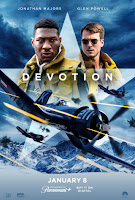the traveler's resource guide to festivals & films
a FestivalTravelNetwork.com site
part of Insider Media llc.
Film and the Arts
The Sounds of Fate at Lincoln Center & Carnegie Hall
- Details
- Parent Category: Film and the Arts
- Category: Reviews
- Published on Monday, 16 January 2023 16:03
- Written by Jack Angstreich

Manfred Honeck
At Lincoln Center’s Alice Tully Hall, on the evening of Monday, October 17th, I had the privilege of attending an excellent concert featuring the remarkable Juilliard Orchestra under the admirable direction of Manfred Honeck.
The event’s beginning was auspicious with a confident account of the impressive Fate Now Conquers from 2020 by Carlos Simon who, according to the program notes, is “now in his second year as composer in residence at the Kennedy Center.” About this work he has said, “I wanted to pay homage to Beethoven but yet remain true to my artistic voice.” The annotator, Thomas May, provided some valuable background:
Gabriela Lena Frank, whose new opera about Frida Kahlo and Diego Rivera will be premiered at the end of this month, served as Simon’s mentor while she was composer in residence with the Philadelphia Orchestra and asked him to write a piece responding to Beethoven’s seventh symphony (composed in 1811-12) for a survey of the cycle to be presented during the 250th anniversary season. Because those performances could not take place as the pandemic unfolded, Yannick Nézet-Séguin led the Philadelphia Orchestra in a virtual premiere in October 2020.
Simon chose his title from an entry in one of Beethoven’s notebooks dated 1815, which quotes a passage from Book 22 of the Iliad: “But Fate now conquers; I am hers; and yet not she shall share/In my renown; that life is left to every noble spirit/ And that some great deed shall beget that all lives shall inherit.”
Simon’s musical ideas suggest what he described as “the unpredictable ways of fate: jolting stabs along with frenzied arpeggios in the strings that morph into an ambiguous cloud of free-flowing running passages depicting the uncertainty of life that hovers over us.” He commented:
We know that Beethoven strived to overcome many obstacles in his life and documented his aspirations to prevail, despite his ailments. Whatever the specific reason for including this particularly profound passage from theIliad,in the end, it seems that Beethoven relinquished himself to fate. Fate now conquers.
An adept, highly promising young soloist, William Lee, then entered the stage for an admirable performance of Wolfgang Amadeus Mozart’s wonderful Violin Concerto No. 4. The opening Allegro was joyous while the ensuingAndante cantabilewas lyrical and more serious. The finale was witty and spirited, the most inventive of the three movements.
The highlight of the evening, however, was its second half: an uncommonly strong presentation of Gustav Mahler’s magnificent, enthralling First Symphony, which Honeck conducted from memory. After a mystical opening, one is led into an enchanted pastoral world with the first movement. The second is an ebullient Ländler with a charming, dancelike trio. The celebrated, haunting third movement is for much of its length grimly sardonic and eccentric but ascends to an unearthly realm. The suspenseful finale opens intensely dramatically and is exuberant with quieter passages and builds ultimately to a triumphant conclusion at which the musicians arose for the final bars—they received a very enthusiastic standing ovation.
At Carnegie Hall, on the evening of Monday, October 24th, the musicians returned under the estimable direction of David Robertson for another terrific concert.
The program opened with a New York premiere, a compelling version of Claude Vivier’s intriguing, ambitious, powerfully orchestrated Siddhartha—inspired by Hermann Hesse’s classic, eponymous novel—which proved to be unexpectedly accessible. In her program notes, Noémie Chemali commented on the work’s background: “In the early 1970s, Vivier’s voracious musical appetite drew him towards Asia, as he embarked on a musicological expedition of Thailand, Japan, and Bali, whose musical influences can be heard in his first and only orchestral suite,Siddhartha.” She added that:
[it] was commissioned by the Canadian Broadcasting Company for the National Youth Orchestra of Canada, which shelved it due to its difficulty. Its premiere would not come until years later—after Vivier’s death—by L’Orchestre Métropolitain led by Walter Boudreau, one of Vivier’s classmates at [the Conservatoire de musique du Québec à Montréal].
But the second half of the event was even more memorable, with a marvelous realization of Igor Stravinsky’s extraordinary ballet score,The Firebird.The opening was sinister and mysterious but with the appearance of the Firebird, the music became even more fantastical. One of the most beautiful sections was “The Princesses’ Khorovod” while one of the most thrilling was the “Infernal Dance of Katschei and His Subjects.” Nothing could have been more beguiling, however, than the thoroughly enchanting “The Firebird’s Lullaby,” which was followed by a glorious, stunning finale.
I look forward to the next appearance of these remarkable artists.
Broadway Play Review—Adrienne Kennedy’s “Ohio State Murders” with Audra McDonald
- Details
- Parent Category: Film and the Arts
- Category: Reviews
- Published on Friday, 13 January 2023 03:49
- Written by Kevin Filipski
.jpg) |
| Audra McDonald in Ohio State Murders (photo: Richard Termine) |
January '23 Digital Week II
- Details
- Parent Category: Film and the Arts
- Category: Reviews
- Published on Wednesday, 11 January 2023 15:00
- Written by Kevin Filipski
January '23 Digital Week I
- Details
- Parent Category: Film and the Arts
- Category: Reviews
- Published on Wednesday, 04 January 2023 09:55
- Written by Kevin Filipski
More Articles...
Newsletter Sign Up




















